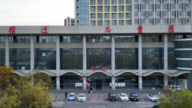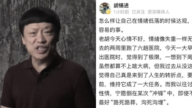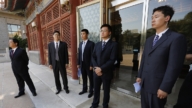【新唐人2011年12月8日讯】11月,中国制造业采购经理指数PMI显示,占中国生产总值约50%的制造业出现了将近三年来的首次收缩。新订单和新出口订单指数预示形势还将恶化,目前工厂已经在减员、减少购买原材料和减产。学者指出,中国的多种政策都对中小企业不利,导致民营企业生存困难。
《法国国际广播电台》“当今世界”专栏指出,中国制造业已经失去优势,世界工厂的地位正在受到多方面的撼动。全球性金融危机对中国出口带来不可忽略的打击,高科技成分不多的中国制造业,正在受到成本增高和加薪工潮增多的多重压力。
北京天则经济研究所副所长冯兴元:“国家对其他基础行业是有很大管制的,搞很多行政垄断、国进民退,这些问题都存在。这样的话,中国的东部地区民营企业家,他可以投资的领域是非常窄。”
这位经济学者认为,国家的现行政策直接导致了东部民营企业的生存艰难。多种政策和地方政府的行政干预,都使劳动密集型的中小企业深受其害。同时,各种税收的规范要求越来越多。
有资料显示,在2004年至2009年之间,中国制造业单位劳动成本上涨了50%。
而英国《金融时报》报导说,一直以“世界工厂”闻名的中国沿海制造业产业带,几百万家小工厂正受到成本持续上涨、劳动力紧缺、利润率下滑以及海外订单锐减等因素的全面挤压,许多小型制造企业已到了经营不下去的地步。
经济学者同意这种看法。他指出,中国东部沿海的企业主要集中在传统型的电脑行业,竞争激烈,而且价格总体上也在不断下降。同时,中共政权推行的多种政策导致公司成本增加,使得本来利润很低的许多公司难以为继。
北京天则经济研究所副所长冯兴元:“ 我们的成本是上升的,无论是劳动力,还有其他资源的投入,中间消耗品的投入成本是上升的。 成本上去他可能关门吗,或者减少雇用人员。所以不能单纯的怪企业家,整个宏观环境、中观环境、微观环境都发生了恶化。”
《法广》专题认为,中共政府多年来一直大力阻止国有银行体系向各种规模小、技术含量低的生产商放贷。当局的政策导致不少中小企业面临信贷紧缩濒临破产的边缘。像浙江地区一些中小企业被迫求助于利息可能高达70%至80%的地下钱庄,使企业无力扩大生产。同时,许多企业面临工人不满生产环境恶化和低工资而引发的罢工潮。中国作为过去被誉为安静的“世界工厂”已经不存在了。
目前,全球需求下滑,加上来自一些邻国的低成本竞争,中国制造业经营越来越艰难。
经济学者指出,中国沿海企业需要大量的技术升级,尤其是向高端升级。
英国《金融时报》记者乔希•诺布尔指出,国企是中国经济发展市场的主体,占据了大量的优势资源,但国企的高层考虑的是自己如何积累更多的政治资本,从而在政治上更上层楼。这样的目标选择,决定了企业不是把精力放在研发设计、产品创新、品牌建设上,那样可能自己栽树后人乘凉。乔希•诺布尔认为,中国制造业向高端转型,要走的路,还很长很长……
新唐人记者刘惠、宋风、黄容采访报导。
Media Views to China: Problem of the “Workshop of the World"
China’s Purchasing Managers Index (PMI) shows that
in Nov. which accounted for 50% of GDP of the manufacturing sector has shrunk for first time in 3 years.
Data shows that both domestic and export orders are weakening,
with factories laying off workers, purchasing less raw materials and production.
Scholars point out that China’s various policies
are detrimental to small and medium businesses,
making it harder for private companies to survive.
Radio France International’s program, The World, said that
China’s manufacturing sector has lost its advantages,
its “workshop of the world" position is looking shaky.
The global financial crisis on China’s export businesses
can not be ignored. Low technology manufacturing
industries are facing huge pressures of higher costs on
raw material and pay rise disputes.
The vice director of Beijing Tianze Institute of Econonmics,
Feng Xingyuan: “China is highly regulated in basic industries,
and makes many trade monopolies, it benefits the
authorities but not the public.
So the private entrepreneurs in eastern China
have very limited investment areas.
Feng believes that the current policies directly creates more
difficulty of survival for private companies.
Various policies and local authorities’intervention damages
small and medium businesses.
Meanwhile, various tax regulation requirements
are growing more and more.
Official data shows that between the years from 2004 to 2009,
China manufacturing labour cost rose by 50%.
The British Financial Times reported that China’s coastal
manufacturing belt was known as the “workshop of the world”,
millions of small businesses are being squeezed on all sides by
rising costs, labour shortages, shrinking margins and a collapse in new orders from overseas.
Many small manufacturers face going out of business.
Feng Xingyuan agrees that China’s main coastal manufacturing
are in the traditional computer industry, they are competitive, additionally, prices keep falling.
Meanwhile, the Chinese Communist Party (CCP),
various policies have led to higher costs on raw materials,
making the low profitability of the companies difficult
to survive.
Feng: “Our capital are rising, including labour and
other investments, the consumable production cost is rising.
The rising costs of capital may cause businesses to close down,
or may lay off workers.
So we shouldn’t simply blame the entrepreneurs,
the whole environment of the economy has dropped down."
Radio France International said that the CCP vigorously
prevented the state-owned banking system to lend money to small and low technology businesses.
This state policy has led small and medium-sized businesses
facing bankruptcy.
Some small and medium-sized companies in Zhejiang have
to borrow money from loan sharks paying 70% to 80% interest rate, with no ability to expand the business.
Meantime, many industries are facing strikes due to
the poor working environment and low wages.
China is famous for its quiet “workshop of the world"
no longer exists.
At present, the global economy demand has declined,
in addition,
low-cost competition comes from border countries
causing China’s manufacturing sector more difficulties.
Feng says that China’s coastal businesses need to improve
technology, especially toward high-end technology.
Josh Noble, a reporter of British Financial Times,
pointed out that
state-owned industries are the foundation of China’s economy,
which takes advantage of main resources,
however, what the decision makers in state-owned companies
consider is to build up political power, to strengthen political position.
This motivation determines their major focus isn’t on
production development, innovative design,
and creating new models, otherwise the
next generation would benefit from it.
Josh Noble believes that for China’s manufacturing sector to
transform to high-end technology, still has a long way to go.
NTD reporters Liu Hui, Song Feng and Huang Rong.



























